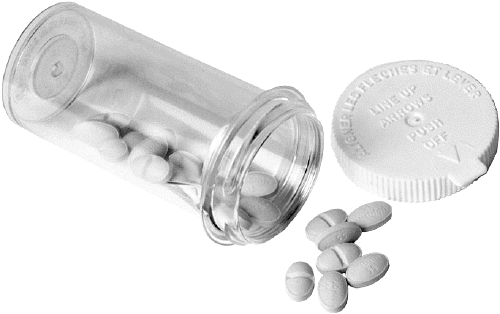Treatment Options
 The "AMA Encyclopedia of Medicine" states there is no curative treatment
but a program of heat, massage, and supervised exercise is essential to keep
back muscles strong and to prevent curvature; they also advise lying face
down during the night. We feel this advice is good, but it is obviously
missing any discussion of beneficial nutritional factors. The "AMA Encyclopedia of Medicine" states there is no curative treatment
but a program of heat, massage, and supervised exercise is essential to keep
back muscles strong and to prevent curvature; they also advise lying face
down during the night. We feel this advice is good, but it is obviously
missing any discussion of beneficial nutritional factors.
The book "The Arthritis Cure " specifically expounds the highly successful
benefits of glucosamine sulfate and chondroitin sulfate in many areas of
the world in the treatment of "osteoarthritis" and specifically points out that
"rheumatoid arthritis" is not within the scope of their studies. Most
likely you may have heard of these "osteoarthritis" benefits from this book or other sources, and not understanding the difference between osteoarthritis and rheumatoid arthritis, made a decision to supplement with glucosamine sulfate.
The terms "osteoarthritis" and "rheumatoid arthritis" are
not interchangeable. Osteoarthritis is a degenerative joint condition from
lack of nutrients that the body needs to maintain optimal joint health.
This happens because of both of the following conditions:
1) a dysfunctional digestive system is not breaking down foods or absorbing the
nutrients; or
2) the diet just doesn't contain adequate or optimal
quantities of the appropriate nutrients.
Rheumatoid Arthritis and the
associated AS occur because of the body producing antibody-antigens that
wrongly attack and damage specific body areas.
Because of these major differences between the development and
damage process of osteoarthritis, and that of rheumatoid arthritis, you
may see some benefits from supplementation with
glucosamine sulfate, but there is a high probability you will have
disappointingly limited results.
 Since in AS the effectiveness of the gastrointestinal process is highly
questionable, improving the process through the supplementation of digestive enzymes (Betaine HCL, Pepsin, Pancreatin, Bromelain, Papain) and friendly digestive bacteria flora should provide for improved digestion. These enzyme factors have been shown to be clinically effective. This means that in a controlled study they actually WORKED! [K. Ransberger, "Enzyme Treatment of Immune Complex Diseases." Arthritis Rheumatology v.8. (1986) p.16-19] Since in AS the effectiveness of the gastrointestinal process is highly
questionable, improving the process through the supplementation of digestive enzymes (Betaine HCL, Pepsin, Pancreatin, Bromelain, Papain) and friendly digestive bacteria flora should provide for improved digestion. These enzyme factors have been shown to be clinically effective. This means that in a controlled study they actually WORKED! [K. Ransberger, "Enzyme Treatment of Immune Complex Diseases." Arthritis Rheumatology v.8. (1986) p.16-19]
Diet is also a factor both in the cause of AS and in daily managing
AS. A therapeutic fast or elimination diet followed by a monitored
reintroduction of foods to identify allergenic foods, will help you isolate
problematic foods (the most common problem foods are wheat, corn, milk and
other dairy products, beef, tomatoes, potatoes, peppers, tobacco).
Identified problems should be eliminated if possible. A diet rich in fresh
fruits and vegetables and fiber, which is low in sugar, meat, refined
carbohydrates, and animal fats.
|  Knowledge gives a person many options for managing ankylosing spondylitis and
they can then personally take charge of the effect this disease is having on their life.
Knowledge gives a person many options for managing ankylosing spondylitis and
they can then personally take charge of the effect this disease is having on their life. More than 400,000 Americans suffer from AS, and it is most commonly seen in young men between 16 and 35 years of
age, and afflicts approximately 1 in 1,000 people under the age of 40.
Three times as many males as females are diagnosed with the disease, but
this may be because females tend to have much milder symptoms and may never
be diagnosed. It also appears in children (mostly boys), who account for
roughly 5 percent of the cases. It is rarely seen in African-Americans.
More than 400,000 Americans suffer from AS, and it is most commonly seen in young men between 16 and 35 years of
age, and afflicts approximately 1 in 1,000 people under the age of 40.
Three times as many males as females are diagnosed with the disease, but
this may be because females tend to have much milder symptoms and may never
be diagnosed. It also appears in children (mostly boys), who account for
roughly 5 percent of the cases. It is rarely seen in African-Americans. Also food
allergies and abnormal bowel function (i.e. leaky gut) may combine and
result in the increased circulation of gut-derived antigens into other areas
of the body. The body produces antibody-antigen complexes (immune
complexes) characteristic of RA to battle these gut-derived foreign
antigens; but these antibody-antigens are thought to also cross-react with
antigens in the joint tissues. In other words, the antibodies formed to
attack the (leaky gut) microbes also cross-react and attack joint collagen.
Also food
allergies and abnormal bowel function (i.e. leaky gut) may combine and
result in the increased circulation of gut-derived antigens into other areas
of the body. The body produces antibody-antigen complexes (immune
complexes) characteristic of RA to battle these gut-derived foreign
antigens; but these antibody-antigens are thought to also cross-react with
antigens in the joint tissues. In other words, the antibodies formed to
attack the (leaky gut) microbes also cross-react and attack joint collagen. Aspirin is the first choice, but the high dosage required is often accompanied by toxicity symptoms of tinnitus (ringing in the ear) and gastric irritation. Other nonsteroidal anti-inflammatory drugs (NSAIDs) like ibuprofen, Motrin, Advil, Nuprin, Feldene, Voltaren, Nalfon, Indocin, Naprosyn, Tolectin, and Clinorial are more powerful in their effect, but also have been proven to ACCELERATE the factors that promote the RA or AS disease process.
Aspirin is the first choice, but the high dosage required is often accompanied by toxicity symptoms of tinnitus (ringing in the ear) and gastric irritation. Other nonsteroidal anti-inflammatory drugs (NSAIDs) like ibuprofen, Motrin, Advil, Nuprin, Feldene, Voltaren, Nalfon, Indocin, Naprosyn, Tolectin, and Clinorial are more powerful in their effect, but also have been proven to ACCELERATE the factors that promote the RA or AS disease process. The "AMA Encyclopedia of Medicine" states there is no curative treatment
but a program of heat, massage, and supervised exercise is essential to keep
back muscles strong and to prevent curvature; they also advise lying face
down during the night. We feel this advice is good, but it is obviously
missing any discussion of beneficial nutritional factors.
The "AMA Encyclopedia of Medicine" states there is no curative treatment
but a program of heat, massage, and supervised exercise is essential to keep
back muscles strong and to prevent curvature; they also advise lying face
down during the night. We feel this advice is good, but it is obviously
missing any discussion of beneficial nutritional factors. Since in AS the effectiveness of the gastrointestinal process is highly
questionable, improving the process through the supplementation of digestive enzymes (Betaine HCL, Pepsin, Pancreatin, Bromelain, Papain) and friendly digestive bacteria flora should provide for improved digestion. These enzyme factors have been shown to be clinically effective. This means that in a controlled study they actually WORKED! [K. Ransberger, "Enzyme Treatment of Immune Complex Diseases." Arthritis Rheumatology v.8. (1986) p.16-19]
Since in AS the effectiveness of the gastrointestinal process is highly
questionable, improving the process through the supplementation of digestive enzymes (Betaine HCL, Pepsin, Pancreatin, Bromelain, Papain) and friendly digestive bacteria flora should provide for improved digestion. These enzyme factors have been shown to be clinically effective. This means that in a controlled study they actually WORKED! [K. Ransberger, "Enzyme Treatment of Immune Complex Diseases." Arthritis Rheumatology v.8. (1986) p.16-19]